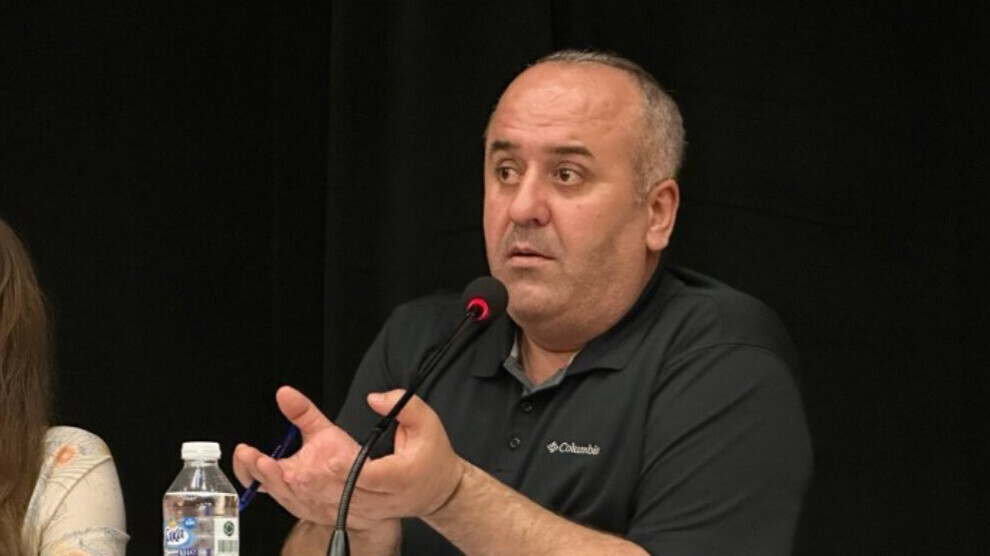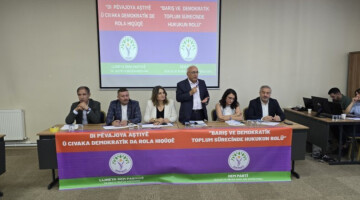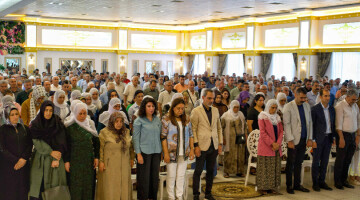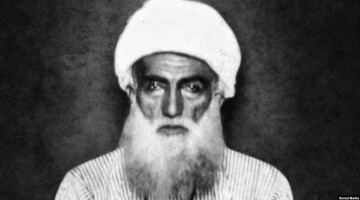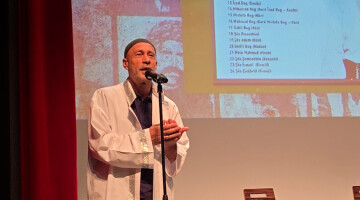The Association of Lawyers for Freedom (ÖHD) Mersin and Adana branches organized a panel titled “The Right to Hope on the Road to Peace” at the Mersin Yenişehir Municipality Academy Conference Hall.
Speaking at the panel’s opening, ÖHD Mersin Co-Chair Melek Saraldı stated that the European Court of Human Rights (ECHR) considers an aggravated life sentence with no possibility of release to be a violation of rights under the prohibition of torture and ill-treatment.
Right to hope
Melek Saraldı said that Turkey has not implemented the ECHR’s ruling finding a violation in Öcalan’s case and emphasized that the right to hope is, at the same time, a right to life.
DEM Party Istanbul MP Cengiz Çiçek, in his speech, noted that Öcalan has been subjected to the harshest isolation and solitary confinement conditions the world has ever witnessed. Çiçek stressed that the discussion of the right to hope should not be limited to Öcalan’s personal situation but should be addressed in the context of the Kurdish people’s collective struggle for existence.
Entering through the door of law
“A people whose existence has been denied must first have their existential legal status recognized. That is, the acknowledgment of their existence and of their being,” Çiçek said, adding that Öcalan has adopted an approach that prioritizes the collective rights of his people over his own personal legal status. Çiçek emphasized that Öcalan’s core aim is “for the Kurdish people to enter through the door of the law.”
Çiçek continued: “Abdullah Öcalan’s fundamental goal—in his own words, the essential purpose of this 52-year marathon and 52-year struggle—is for the Kurdish people to step through the door of the law. A society, a nation whose existence, name, and very body have been denied—a nation marked as a threat due to its claim to sovereignty and subjected to ideological suppression as an instrument of ideological domination.”
Systematic isolation and lawlessness
Çiçek said that “whenever Kurds and Öcalan are concerned, the entire legal order is shelved.” He added that this situation not as coincidental but as a structural reality that can be explained by the historical choices of the nation-state.
He noted that the nation-state seeks to eliminate dynamics it perceives as a threat on a legal basis, and the isolation system is nourished by this mindset.
Çiçek concluded: “The right to hope also points to a mindset that does not respect the existence of its interlocutor or does not even recognize that existence.”

